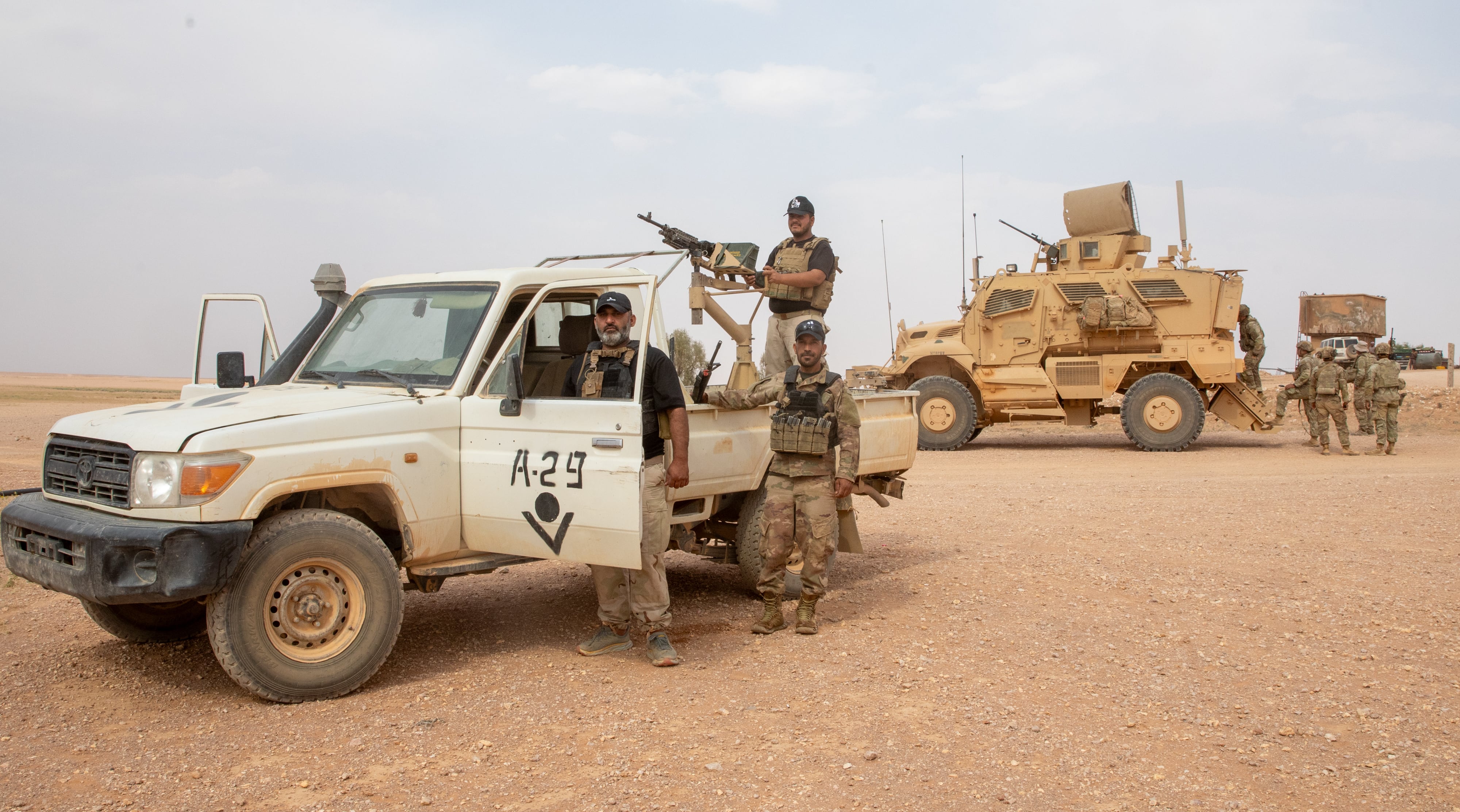FORT BRAGG, N.C. — Half a decade ago, the 100-year-old Defense Department psychological operations community got a rebrand: Military Information Support Operations.
The mission was the same, but the new name was supposed to reflect a broader range of activities beyond the classic strategic propaganda.
But the organizational name change caused more confusion than it cleared up. So now, the Army is switching back to good old PSYOP, with the understanding that military information support describes what they do but not who they are.
“Given Russian disinformation, given this new world where the information fight is becoming more complex and nuanced, there’s a level of pride when I can say, I’m a PSYOP soldier in a PSYOP unit that has this lineage and did these kinds of things,” Lt. Col. Brad Carr, the director of information operations at U.S. Army Special Operations Command, told Army Times in a Nov. 2 interview.
In a sentence, PSYOP refers to “the ability to operate in an approved area to influence the behaviors and attitudes of foreign target audiences, in line with national objectives,” he added.
But back in 2011, Carr said, DoD was looking for a more general term to describe what PSYOP units did. They settled on MISO because it sounded like a kinder, gentler update to the PSYOP mission, especially when working with other agencies such as the State Department.
So the Army stood up Military Information Support Operations Command to ease some of the suspicion PSYOP seemed to generate.
“This is just a terminological change, not a substantive change. The term PSYOP was anachronistic and misleading. Military Information Support is a more accurate description of the activities and programs at issue,” Rosa Brooks, then the senior adviser to the undersecretary of defense for policy, wrote in a 2010 internal email obtained by The Atlantic.
Brooks went on to describe how military information support was a natural progression.
“We already use the term ‘Military Information Support Teams’ to describe the PSYOP personnel who deploy to embassies and provide support to State Dept public diplomacy efforts; this more thoroughgoing terminological shift will make our terminology consistent and help reduce misunderstandings,” she wrote.
But while the Army updated its paperwork and office signage, the term “psychological warfare” still hung around — not only in unit names but in human resources and acquisitions databases, Carr said, which led to administrative confusion.
Clearing things up
“We’re really kind of helping to get back to efficiencies, probably in the way we should have been — not having to translate PSYOP to MISO and back,” Carr said.
And while MISO might have sounded better to the State Department and other agencies, the term created confusion abroad.
“I will tell you, our partner forces — NATO, the U.K. — they still refer to it as PSYOP. If I say I’m a PSYOP soldier? ‘Oh, I am, too,’ “ Carr said. “In terms of language lenses, it could potentially be more sinister to give this term that they’re not aware of for a unit coming in.”
PSYOP might be best known for combat operations and enemy target-focused information support, he added, but their missions extend to humanitarian work.
“I think we’re at a point now where we can define that.” Carr said, while keeping the PSYOP moniker.
The change back to PSYOP is mostly administrative, a USASOC spokesman told Army Times, adding that the commanding general made the final decision on the change in October.
The next step is to educate organizations who work with PSYOP about the change.
“PSYOP forces conduct MISO,” Lt. Col. Robert Bockholt, the USASOC spokesman, said. “Psychological operations refers to the name of units, while MISO refers to the function that soldiers in PSYOP units perform.”
For example, Carr added, Special Forces soldiers don’t conduct “Special Forces.”
“They conduct a myriad of activities, from foreign internal defense, direct action, strategic reconnaissance, and on and on and on,” he said. “Just like an infantry soldier. An infantry unit doesn’t conduct infantry.”
Changing the name is also a boon to community morale, Carr added.
“I will say, there’s a level of pride, and I would open it up to anyone in uniform when you can tie into this lineage, or any kind of lineage,” he said. “When you see the 101st [Airborne Division] or the 82nd [Airborne Division], and the stories, it does bring a level of pride.”
Meghann Myers is the Pentagon bureau chief at Military Times. She covers operations, policy, personnel, leadership and other issues affecting service members.





